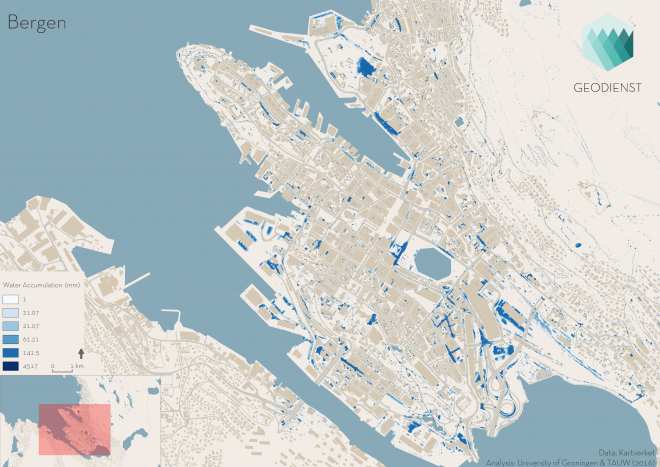After the INXCES in Bergen (Norway) in November 2016 the first results of 3D floodmapping was presented at ISCEE 2016 (Melaka, Malaysia) ‘High resolution decision maps for urban planning: a combined analysis of urban flooding and thermal stress potential in Asia and Europe’
Abstract: Urban flooding and thermal stress have become key issues for many cities around the world. With the continuing effects of climate change, these two issues will become more acute and will add to the serious problems already experienced in dense urban areas. Therefore, the sectors of public health and disaster management are in the need of tools that can assess the vulnerability to floods and thermal stress. The present
paper deals with the combination of innovative tools to address this challenge. Three cities in different climatic regions with various urban contexts have been selected as the pilot areas to demonstrate these tools. These cities are Tainan (Taiwan), Ayutthaya (Thailand) and Groningen (Netherlands). For these cities, flood maps and heat stress maps were developed and used for the comparison analysis. The flood maps produced indicate vulnerable low-lying areas, whereas thermal stress maps indicate open, unshaded areas where high Physiological Equivalent Temperature (PET) values (thermal comfort) can be expected. The work to date indicates the potential of combining two different kinds of maps to identify and analyse the problem areas. These maps could be further improved and used by urban planners and other stakeholders to assess the resilience and well-being of cities. The work presented shows that the combined analysis of such maps also has a strong potential to be used for the analysis of other challenges such as air and water pollution, immobility and noise.
more info? https://www.climatescan.nl/projects/869/detail
